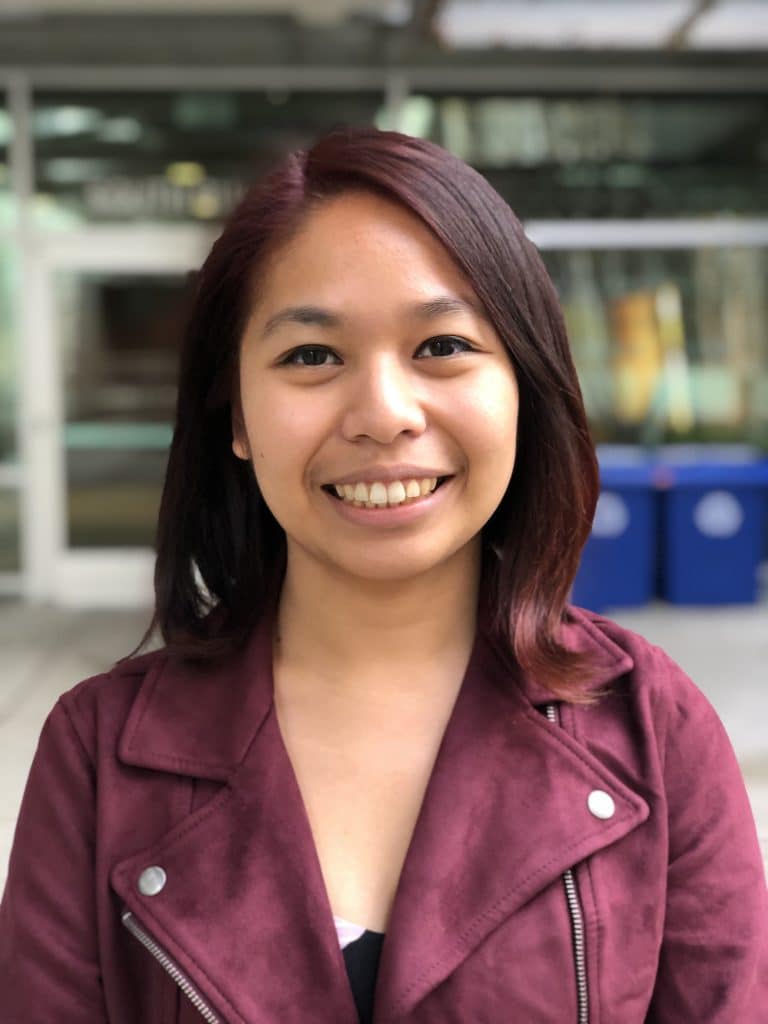
By Dawn Angelicca Barcelona
I’ve been working in tech recruiting at various tech companies for the past 5 years, but this was far from the teaching career I had envisioned for myself before I embarked on my international fellowship. There isn’t a day that goes by where I don’t apply an aspect of my Fulbright English Teaching Assistantship experience to my current career in tech. In fact, completing an international fellowship made me a more competitive tech applicant, and helped my resume stand apart from the rest.
If you’re thinking about making a pivot and wondering how to launch your tech career, I’ll share my story of how I leveraged my international fellowship experience to land my first job in tech, along with some tips for how you can do the same.
I went from teaching to tech, and you can, too. Get ready to launch your tech career with these simple tips!
My Journey from Teaching to Tech
For years, I wanted to become an English teacher because I loved to read and write. I was in the Future Teachers Association in high school, taught phonics and reading to elementary school students as my first paid job, and tutored essay writing at two of my college’s writing centers.
After my junior year of college, my University’s Fellowships Office reached out and asked if I had thought about applying for international fellowships. I hadn’t thought about it at the time because I was following a neatly laid out plan to attend graduate school for Education and return to teach in my hometown of Newark, New Jersey. I had never considered leaving the East Coast, but that conversation left me wondering what life abroad could be like.
The Fulbright English Teaching Assistant (ETA) program seemed like the best fit for my skills and career goals. Fulbright ETAs are placed in classrooms abroad to teach English in local schools while serving as cultural ambassadors for the U.S. When you apply for a Fulbright grant, you need to decide which country you’d like to apply for, and I chose South Korea because I was writing my senior English honors thesis on Korean-American writer Theresa Hak Kyung Cha. I worked on my personal statement in phases, submitted my application in the Fall of my senior year, and received news that I had won the fellowship a month before graduation.
I was faced with the tough decision between staying in the U.S. to follow my life plan of attending grad school, or taking the once-in-a-lifetime opportunity that Fulbright provided. I took the risk. After two years in South Korea, I made the decision to let go of my graduate school plans and returned home without my next job secured. This was scary for me as someone who had always been hyper-focused on a single career goal, but this pivot also opened many doors and exciting opportunities.
When I struggled to land a job at more established corporate companies, someone told me that tech companies were more open to hiring applicants with non-traditional backgrounds. I gave it a shot and applied to a few different startups in the Bay Area — within a month, I landed my first tech recruiting job!
4 Tips to Launch Your Tech Career Using Fellowship Skills
The skills you gain from your international fellowship are extremely transferable — and if you know how to communicate them effectively, it will be easy to launch your tech career.
Tech companies are guided by core values, and while they may be referred to differently at each company, knowing how to illustrate how you’ve lived out these values in your past work will be crucial to landing your first tech gig. Below are some of the values you should be able to express when applying and interviewing for tech positions, as well as how you can draw from your international fellowship experience to answer some common interview questions.
1. Illustrate A Passion for Learning
Unless you’re interviewing for a very specialized role, I’ve found that intellectual curiosity and an appetite for knowledge will go a long way in the tech world. Exhibiting these skills will allow you to quickly pick up jargon, understand business objectives, and grasp market intel without a problem. During your fellowship abroad, you probably learned a new language, took or taught classes at a local university, or dove into a research project.
To tap into examples of your growth mindset, ask yourself:
- How did I teach myself something new in order to thrive in my fellowship?
- How did I keep myself motivated to finish my research project? Why was it important?
- What did I learn about my host community’s culture? How did this knowledge serve me in my fellowship role?
When I’m asked about my ability to pick up new skills, I highlight my passion for learning everything I can on a topic of interest. My senior thesis led me from my fellowship advisor’s office to moving to South Korea to study Korean and visit the places Cha wrote about, all while learning the traditions and history of the country. This intellectual curiosity has served me well in the field of tech, and will be useful for you, too, as you launch your career in tech.
2. Exhibit Communication and Collaboration Skills
It’s common at tech companies for employees to wear many hats and collaborate with coworkers at all levels: your immediate teammates, managers, directors, or even the executive team. While there might be an emphasis on working independently, you will still be expected to clearly present and document the goals, methods, and results of your projects to colleagues and supervisors. During your fellowship abroad, you also had to collaborate with colleagues and community members, with the added challenge of overcoming language barriers and cultural differences. This skill is extremely valuable in the tech industry!
Some guiding questions to think about:
- Describe a conflict and how you addressed it. What was the outcome?
- How did you collaborate with people from different backgrounds during your fellowship?
- How have you simplified a long, complex issue in order to explain it to a colleague or student?
In my tech interviews, I used the example of teaching students of all grade levels: from kindergarteners who couldn’t yet read the alphabet to 6th grade students fluent in English. I had to create lesson plans that included something challenging but doable for all reading, speaking, and writing levels. This exhibited my ability to communicate effectively and creatively to explain difficult topics — a huge boon in the tech industry!.
3. Describe Situations Where You’ve Thrived in Ambiguity
Being able to expect the unexpected is something that should resonate with all international fellowship alumni. At tech companies, the spirit of innovation and taking risks often leads to unexpected outcomes. You might have to come up with your own solutions and ideas, and execute new projects that are a first in your company’s history. This might be similar to how you to the unexpected situations (otherwise known as adventures!) that came your way during your time abroad.
Work through some of these questions as you apply for positions in tech:
- When was a time you needed to solve an urgent problem without input from others?
- How have you addressed a challenge you had never previously experienced?
- What is your approach if you can’t independently find the right solution to a problem?
One of the toughest moments of my Fulbright grant was when I found out I had been assigned to teach at a brand new school that had only 3 students enrolled, but was expected to grow rapidly. Since I was someone who liked to have things planned out, this was really anxiety-provoking for me. I found out each morning how many students would be in each class, so I had to plan lessons that could be adjusted easily. Within 4 months, the school grew to over 300 students. It was a whirlwind, but telling this story in my tech interviews exhibited how I creatively overcome challenges and roll with the punches. Illustrating this skill will allow you to launch your tech career, too!
4. Network!
If you’re interested in making a pivot into tech but having trouble figuring out where to start, utilize your fellowship’s alumni network or attend a fellowship networking event. As I was trying to land my first role in tech, I reached out to alumni who were already working in human resources or recruiting and asked for some tips on what I can highlight from my fellowship on my resume. I also used two websites, The Muse and BuiltIn, to identify successful startups and tech companies all around the U.S.
And here’s my most important tip: When you look at job postings and notice you don’t have every skill or requirement listed, apply anyway! Your international fellowship can be the reason your application stands out from the crowd, and the final selling point for launching your career in tech.
Dawn Angelicca Barcelona (she/her) is a Filipina-American tech recruiter in
Searching for your first job after your fellowship abroad? Learn more about How to Showcase Your Fellowship Experience in Job Applications!